Climate change is real and over the years its effects are becoming more and more obvious. Flooding, fires, and drought are all signs that our environment is changing. For over 30 years people have been trying to make simple changes to their lifestyles at home and work but technology, big oil companies, and bad information have made it difficult to make significant changes. We've grown accustomed to instant gratification, overindulgence, wastefulness, and a more is better mindset. None of which provide a solution for taking care of our planet and everything that lives on it.
#1 We Are In This Together
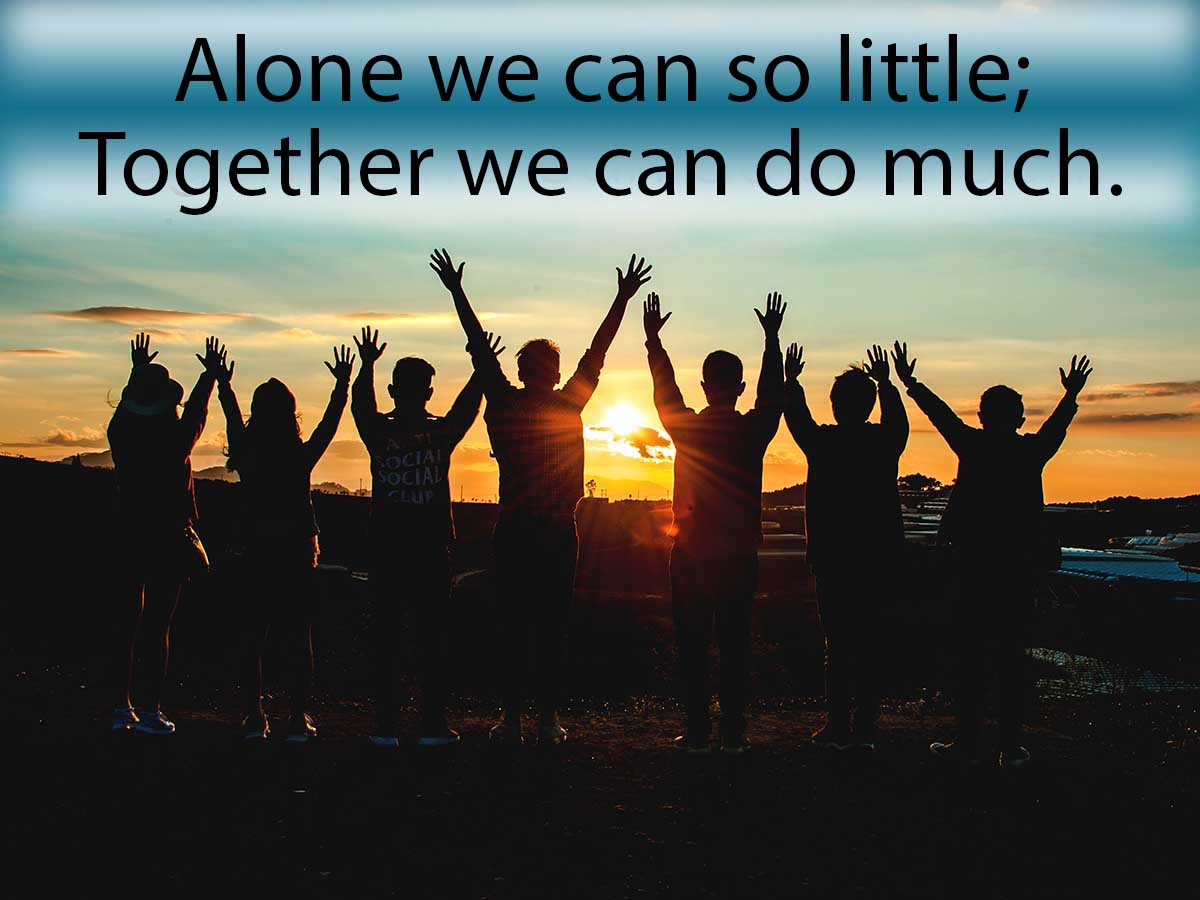
We are in this together and only together will we make significant changes. The best place to begin is learning and educating ourselves and others on simple ways to reduce, reuse, recycle, and how to live greener.
#2 Education is Critical
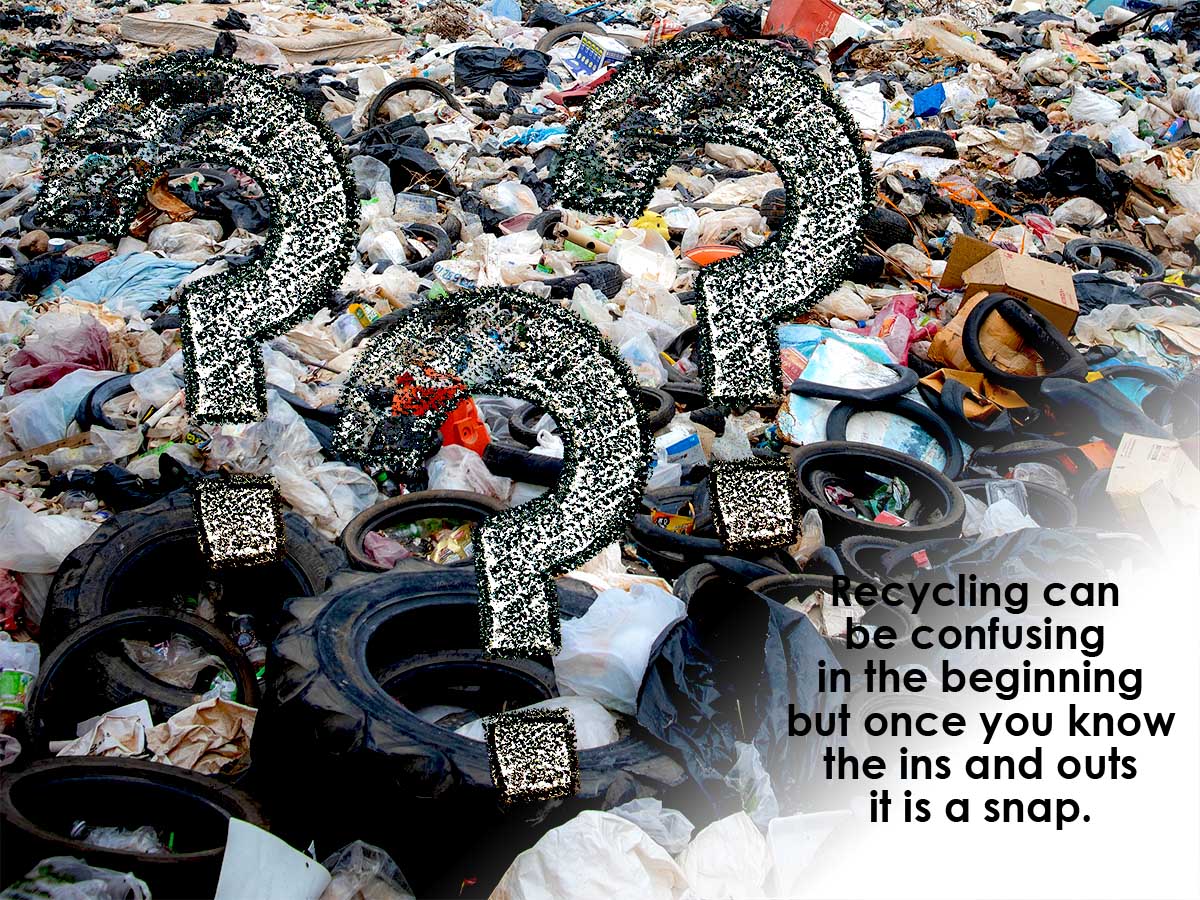
Recycling is complicated and it varies from city to city. To muddy the waters, even more, the use of the chasing arrows on plastic containers is not regulated and just because there is a chasing arrow on your product's packaging doesn't mean it is recyclable. Unfortunately, the majority of plastics either aren’t or don't get recycled. They either end up in the landfill, in the ocean and on our beaches.
Research your local recycling municipality and see what they do and don't accept and their recommendations for sorting and recycling. For example; here is a brief video from our local recycler.
#3 Food Waste in America is Staggering
Did you know that food waste is a major contributor to climate change and other environmental issues? Growing food requires a lot of resources so when food goes to waste, those resources do as well. Reducing food waste will improve resource use and efficiency and lower greenhouse gas emissions. Additionally, food waste that is not disposed of correctly, i.e. through composting, contributes negatively to the environment by releasing greenhouse gas methane.
According to the Natural Resources Defense Council, Americans throw away up to 40% of food that is safe to eat.
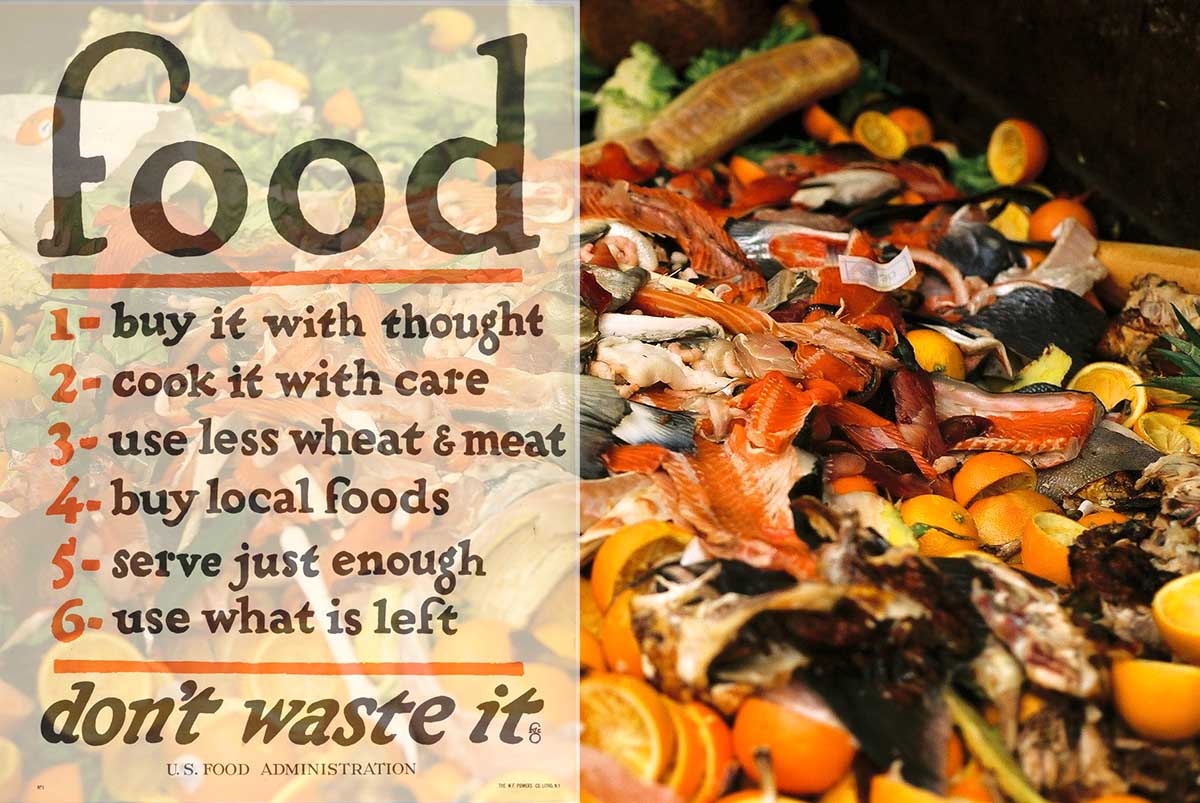
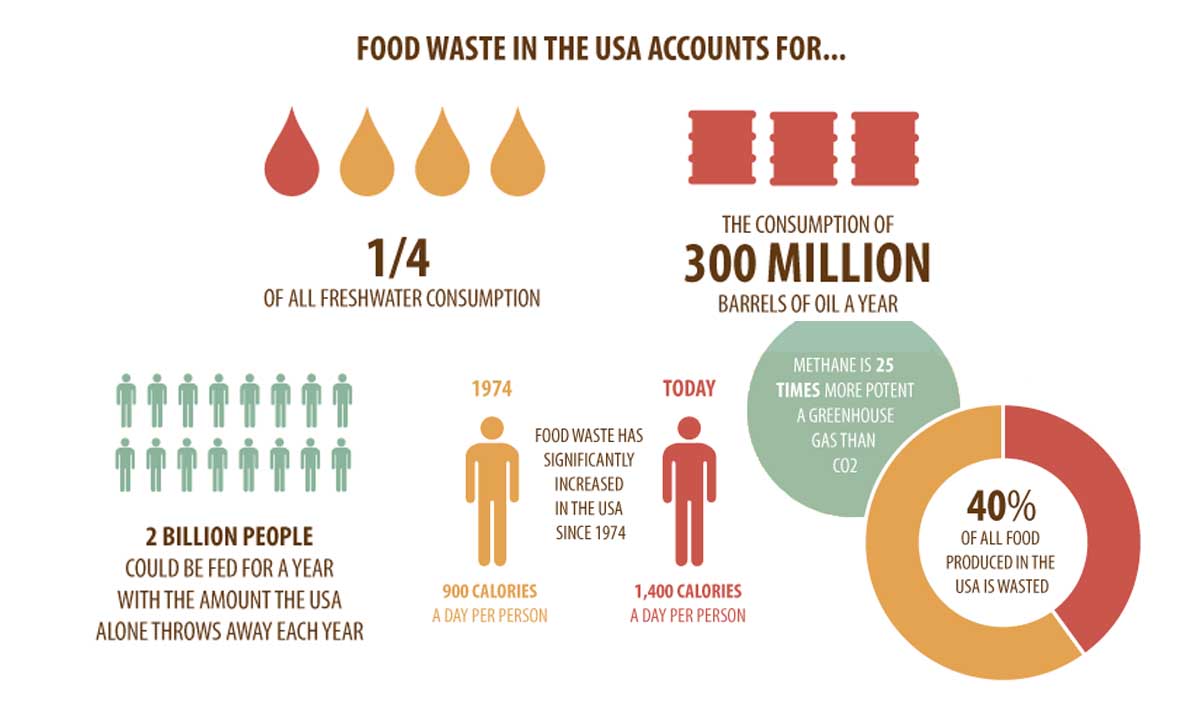
Simple lifestyle changes can reduce food waste. If you have leftovers from dinner the night before, take them for lunch the next day. Freeze leftovers if possible to consume at a later date. Don't get carried away when buying in bulk, have a plan on how you are going to store and consume your items. Also, if you have the ability to compost, do so, and if you have a local recycling program that picks up the yard and food waste, you should take advantage of the service.
#4 Farmers Markets Promote Sustainability
Many cities across the country offer access to a farmers market. In fact, farmers markets have become a critical ingredient to local economies and communities. Linking rural to urban, farmer to consumer, and fresh ingredients to our diets. Farmers markets aren’t only good for your local economy they are good for your health as well. Families with access to a farmers market eat an average of 1.4 servings more fruits and veggies than people without access to a market.
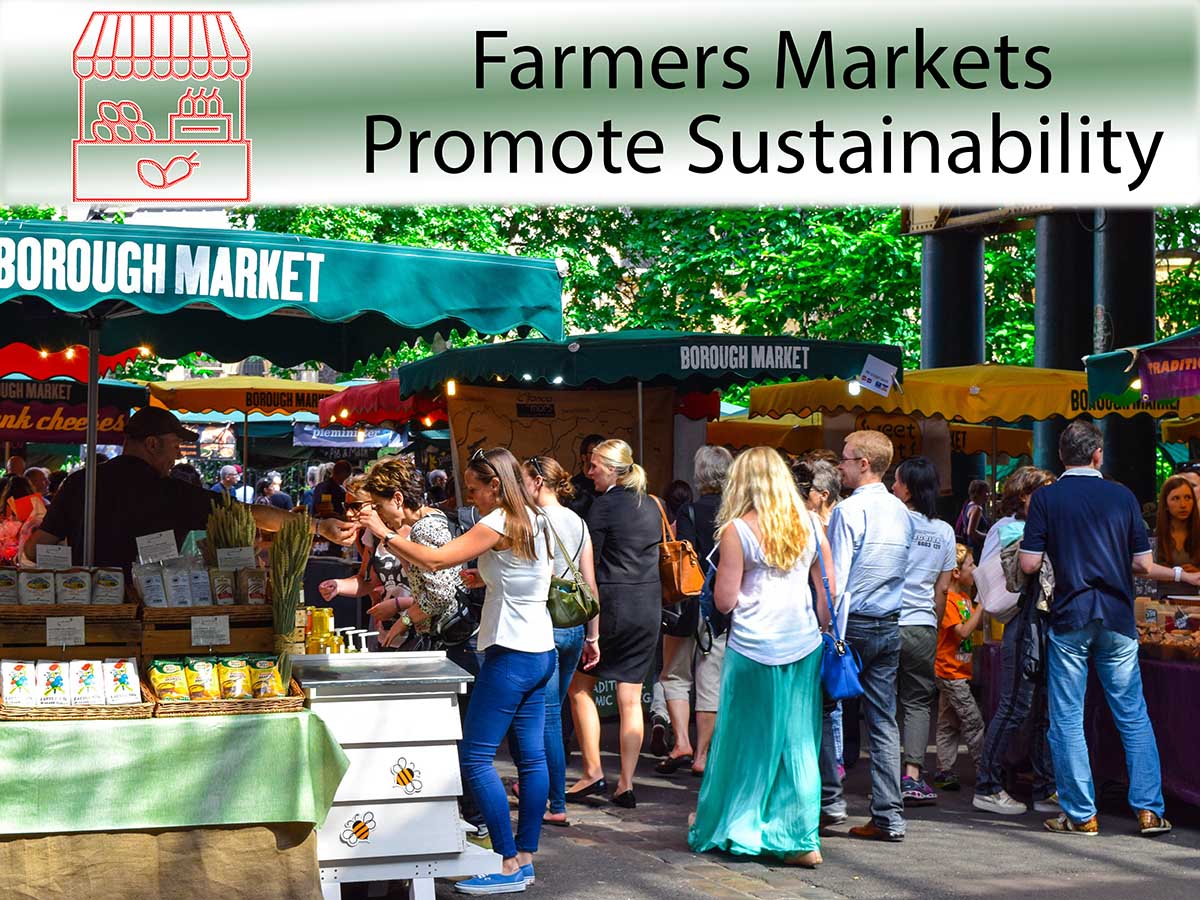
It is difficult for farmers who use sustainable practices to compete with large corporate farms whose main concern is low prices and massive volumes. Farmers markets create a space for farmers to sell their products directly to the consumer while focusing on quality and sustainable farming practices. Each year more and more people are attracted to locally grown products because the demand for natural and organic foods is increasingly important to many peoples' health.
Local Farmers tend to:
- Minimize waste and pollution
- Use certified organic practices
- Minimize the use of pesticides that pollute the soil and water
- Adopt low-impact practices
- Have on-site composting
- Interact positively with the natural environment
- Interact and educate customers about sustainable farming